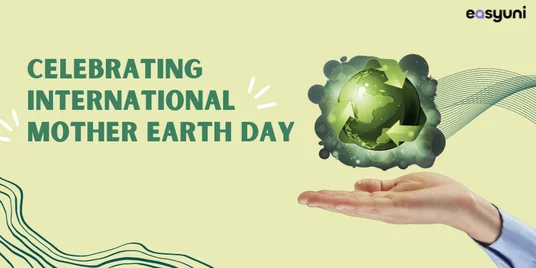
BSc in Chemistry

Course overview
| Qualification | Bachelor's Degree |
| Study mode | Full-time |
| Duration | 3 years |
| Intakes | September |
| Tuition (Local students) | $ 34,273 |
| Tuition (Foreign students) | $ 122,273 |
Admissions
Intakes
Fees
Tuition
- $ 34,273
- Local students
- $ 122,273
- Foreign students
Estimated cost as reported by the Institution.
Application
- Data not available
- Local students
- Data not available
- Foreign students
Student Visa
- Data not available
- Foreign students
Every effort has been made to ensure that information contained in this website is correct. Changes to any aspects of the programmes may be made from time to time due to unforeseeable circumstances beyond our control and the Institution and EasyUni reserve the right to make amendments to any information contained in this website without prior notice. The Institution and EasyUni accept no liability for any loss or damage arising from any use or misuse of or reliance on any information contained in this website.
Entry Requirements
Language Requirement:
TOEFL: 600 above, writing 4.5
CBT: 250 above, writing 4.5
IBT: 85 above, writing 22 above, speaking 23 above
IELTS: 6.5 writing& speaking >6.0
Curriculum
First year
All courses
- Chemical Reactivity
- Atomic Structure
- Introduction to Spectroscopy and Characterisation
- Mathematics for Chemistry I
- Aromatic Chemistry
- Chemical Equilibria
- Molecular Structure
- Periodicity
- Coordination Chemistry
- Stereochemistry
- Alkanes, Alkenes, Alkynes
- Haloalkanes, Alcohols, Amines
- Chemistry of Carbonyls and Carboxyls
- Chemical Kinetics
- States of Matter
- Quantum Chemistry I
Ancillary subjects
- Humanities options (e.g. Philosophy, Politics)
- Maths and Physics for Chemists I
- Chemical Engineering I
- Medicinal Biology
- Chemistry with a Language for Science students will take language classes and History and Politics of chosen country (e.g. France)
- Chemistry with Research Abroad (CRA) students normally take the appropriate language
- Chemistry with Medicinal Chemistry (CMC) students take Medicinal Biology
- Chemistry with Molecular Physics (CMP) students take Maths and Physics for Chemists I
Practical work
Courses in basic techniques, synthesis, arrow pushing and spectroscopy workshops, and physical chemistry; a chemical information technology (CIT) course which introduces the use of computers for access to chemical information and molecular modelling.
Second year
All courses
Inorganic chemistry:
- NMR and EPR Spectroscopy
- Molecular Orbitals in Inorganic Chemistry
- Main Group Chemistry
- Transition Metal Coordination and Organometallic Chemistry
- Crystal and Molecular Architecture
Organic and biological chemistry:
- Organic Synthesis I
- Heteroaromatics
- Biological Chemistry I
- Pericyclic Reactions
- Conformational Analysis
Physical chemistry:
- Interfacial Thermodynamics
- Electrochemistry and Electrochemical Kinetics
- Statistical Thermodynamics
- Electronic Properties of Solids
- Mathematics for Chemistry II
Ancillary subjects
- Languages (most major European languages are available at all levels)
- Humanities options (e.g. Philosophy, Politics.)
- Management
- Maths and Physics for Chemists II
- Chemical Engineering II
- Medicinal Chemistry
- Undergraduate Ambassador Scheme (UAS): school chemistry teaching experience
- Chemistry with a Language for Science students will take language classes and History and Science and Technology of chosen country (e.g. France)
- CRA students normally take a further language course
- CMC students take Medicinal chemistry
- CMP students take Maths and Physics for Chemists II
Practical work
More advanced synthesis and symmetry techniques will be covered, as well as the introduction of electronic structure and statistical mechanics.
Third year
MSci courses plus BSc Chemistry (F100), BSc Chemistry with Management (F1NF), Chemistry with Management and a Year Abroad (FN11), and Chemistry with a Language for Science (F1R1, F1R2, F1R4)
Compulsory courses – Term 1
Inorganic chemistry:
- Advanced Transition Metal Chemistry
- Advanced Main Group
- Inorganic Mechanisms and Catalysis
- Solid State Chemistry
Organic chemistry:
- Organic Synthesis II
- Polymers: the Essential Guide
- Introduction to Physical Organic Chemistry
- Introduction to Reaction Stereoelectronics
Physical chemistry:
- Modern Analytical Chemistry
- Quantum Chemistry II
- Photochemistry
Optional courses – Term 2
Specialised sectional topics:
- Inorganic Chemistry
- Organic Chemistry
- Physical Chemistry
You will take nine optional courses. Both MSci and BSc students undertake a literature project.
Practical work (MSci)
Four courses: Advanced Techniques in Organic, Inorganic, Computational and Physical Chemistry.
Practical work (BSc)
Two courses selected from organic, inorganic, computational or physical chemistry, and a research project.
Chemistry with a Language for Science
- Language classes
- Scientific and Technical Translation for Chemistry








